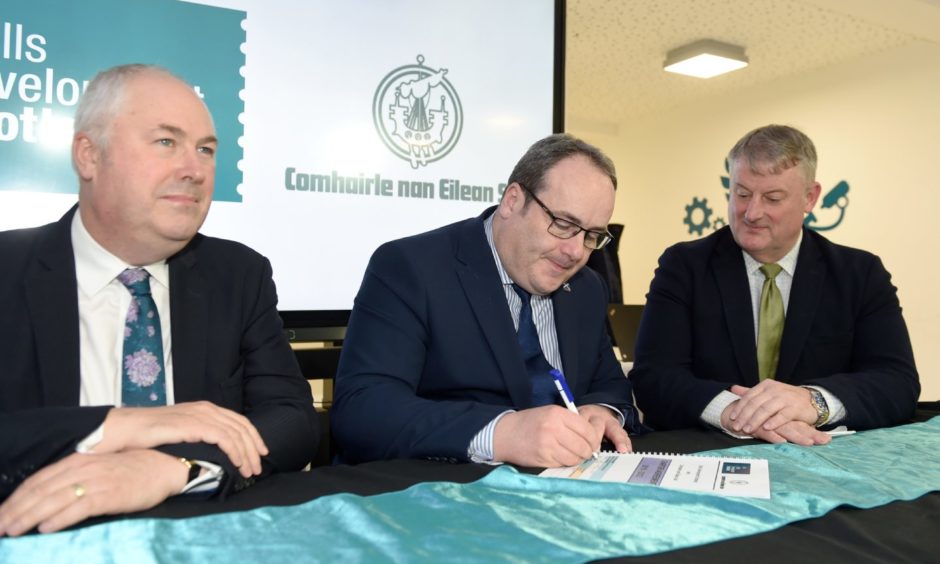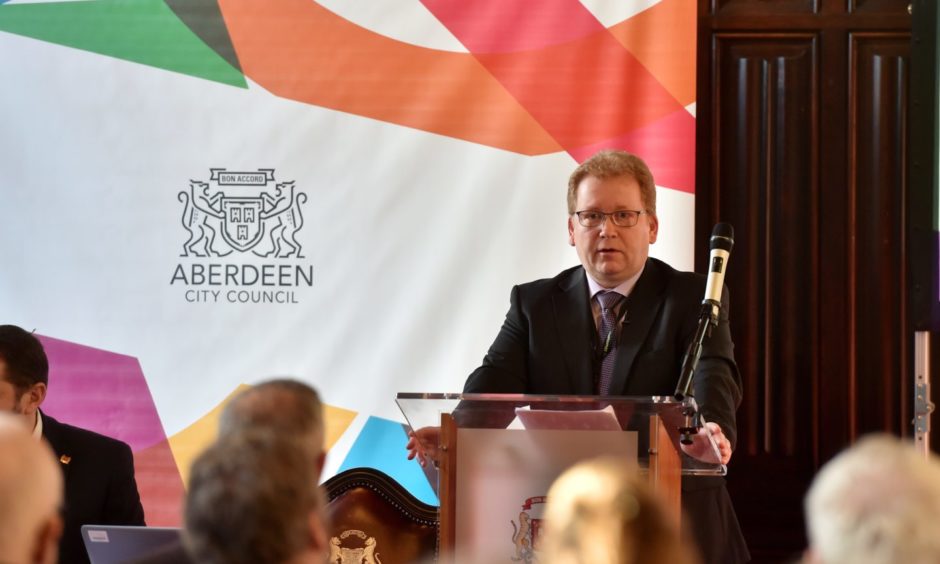Council chiefs have warned the pandemic has left costs spiralling across the board and has “blown away” their ability to balance the books.
MSPs were told local authorities were struggling to cope with the loss of tens of millions of pounds worth of income, combined with higher construction bills and disrupted reform programmes.
Malcolm Burr, chief executive of Comhairle nan Eilean Siar (Western Isles Council), was among the senior officials giving evidence to Holyrood’s local government committee on Wednesday.
I would say Covid has blown away our capacity to manage, through prudent savings, mitigation of shortfalls through reserves.”
Malcolm Burr, chief executive of Comhairle nan Eilean Siar
He said his authority was facing a net “gap” of around £3.7m in lost income alone, and that councils had little room to manoeuvre after a decade of cutbacks and austerity.
“I would say Covid has blown away our capacity to manage, through prudent savings, mitigation of shortfalls through reserves,” he said.
“But also, of course, it has changed, and there will be elements that have changed for the better, but it has disrupted the programme of service redesign and transformation, on which we embarked and which have brought a great deal of savings, but inevitably it slows that, it halts that.”
Mr Burr added: “So that combination of prudent savings, use of balances, combined with service redesign and transformation, is under threat at a time when we are all hit with massively lost income.”
Jonathan Belford, chief finance officer at Aberdeen City Council, told the committee that Sport Aberdeen and Aberdeen Performing Arts were among the hardest hit.
I think, in terms of scale, it would be helpful maybe to say, from an Aberdeen perspective, that amounts to about £20m of external customer income that was immediately switched off.”
Jonathan Belford, chief finance officer at Aberdeen City Council
“There was a clear and immediate impact on our arm’s-length external organisations, culture and sport, where incomes externally generated by customers were immediately effected,” he said.
“I think, in terms of scale, it would be helpful maybe to say, from an Aberdeen perspective, that amounts to about £20m of external customer income that was immediately switched off.
“So they went into a particularly challenging position.”
Mr Belford added: “I think the challenge definitely has extended to all parts of the council, whether that has been staff who have continued working through the pandemic, working from home, for example, dealing with the sustained period working away from the office, and dealing with staff and the mental health issues that arise out of that.”
Additional costs in education
Mr Burr also suggested that costs were now rising in almost every service area.
He said: “In terms of finance, certainly social care and care for people have seen the most significant additional costs.
“There have been additional costs in the education side as well, as we move to blended learning, although my council sees itself as a leader, and I think rightly, in that field, anyway.
“But also the hidden costs of, particularly, capital works. We all know how small the capital programme pro rata other years was for this term of local government.
“And the delays to critical investment programmes, and the additional cost to contractors, most of which are inevitably borne by those commissioning the projects, I would say have been the area of biggest cost.
“But now we are seeing, I think, costs in every service area increasing, other than, I think, the obvious minor savings in travel and subsistence, and minor budget adjustments like that.”
Blended working survey results
Mr Burr signalled that buildings could be sold, as he said staff surveys at Western Isles Council had found 90% favoured a move to a “blended working model”.
“And that of course builds on our other strategies of reducing the number of buildings we occupy, of sharing needs with other public sector bodies,” he said.
And the chief executive indicated that library services may never return to their previous way of operating, following changes made during the pandemic.
“I suppose the biggest change has been in our library service, which was not back on until, really, last month,” he said.
“At the moment, we are really operating that partly online, partly by presence, in that you choose your books online and collect and return them in the library.
“And, I have to say, I thought that would be criticised by the public but it seems to have been readily accepted, and I have to wonder if that is maybe a model for the future.
“We have to make sure, of course, that those who are digitally excluded would be able to partake in that, perhaps through the continued use of the mobile libraries.
“But that is one example where we will certainly be looking to change things.”



